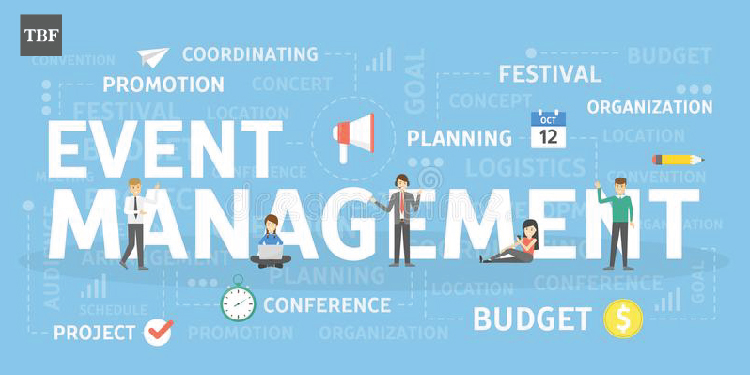A Deep Dive Into Exactly How Event Management Functions to Develop Remarkable Experiences
Event management is a complicated self-control that integrates numerous elements to craft memorable experiences. It needs a clear understanding of the event's objective and audience. Coordinators must browse budgeting, logistics, and advertising to ensure a seamless execution. Each component plays a crucial duty in accomplishing the wanted impact. However, the trip does not end with the event itself. There are understandings to reveal that can form future undertakings.
The Basics of Event Management
Efficient event management incorporates an array of necessary principles that direct the preparation and execution of effective events. At its core, it includes recognizing the event's purpose, audience, and wanted end results. Identifying the target market is essential, as it informs decisions connected to web content, marketing, and logistics.
Budgeting is one more essential element, assuring that resources are allocated efficiently while meeting the event's purposes. This consists of preparation for unanticipated expenditures that might emerge.
Time management plays an important duty, as event supervisors should develop an in-depth timeline to collaborate different tasks and milestones.
Additionally, efficient interaction amongst stakeholders, vendors, and group members is necessary to ensure positioning and prevent misconceptions.
Danger management must be taken into consideration, with contingency strategies in location to attend to possible obstacles, therefore boosting the general experience for participants and guaranteeing a seamless execution of the event.
Trick Roles in Event Planning
In event planning, understanding vital duties is vital for successful implementation. The event planner is accountable for managing logistics and guaranteeing all aspects line up with the vision. Furthermore, effective vendor management is crucial for keeping high quality and fostering strong partnerships throughout the planning procedure.
Event Organizer Duties
An event planner orchestrates the intricate components of event preparation, ensuring seamless implementation from fertilization to verdict. They are in charge of conceptualizing the event motif, establishing budget plans, and creating timelines to keep the task on course. Coordination with stakeholders, including customers, venue supervisors, and volunteers, is vital to align assumptions and assist in interaction. The organizer likewise oversees logistics, such as catering, transportation, and modern technology needs, making sure all elements operate sympathetically. They perform site sees, handle timetables, and troubleshoot problems that might emerge throughout the event. Post-event, the planner assesses the event's success, gathering comments and analyzing outcomes to inform future jobs. This diverse duty needs solid organizational skills, attention to detail, and effective interpersonal interaction.
Supplier Management Fundamentals
Steering with the landscape of vendor management is important for successful event preparation. Reliable supplier management entails identifying, choosing, and coordinating suppliers that give important services, such as catering, audiovisual assistance, and design. Event planners must keep solid communication with suppliers to assure that all elements line up with the event's vision. Secret functions include the vendor manager, who oversees contracts and negotiations, and the logistics coordinator, in charge of on-site arrangement and implementation. It's important to develop clear assumptions and timelines, promoting a collaborative environment that improves the overall experience. By focusing on these components, event organizers can browse prospective difficulties, guaranteeing that every detail adds to a smooth and unforgettable event.
Crafting a Vision: Idea Development

Once a vision is established, it ends up being necessary to equate it right into workable components. This consists of defining the ambience, choosing ideal locations, and figuring out the event's style. Teaming up with stakeholders, including enrollers and companions, additionally refines the concept, guaranteeing that all events share a merged understanding of the event's objective. Ultimately, a strong vision not only boosts attendee involvement yet likewise establishes the stage for unforgettable experiences that resonate long after the event concludes.
Budgeting and Resource Appropriation
With a clear vision in position, the next action in event management involves mindful budgeting and source allotment. This critical stage guarantees that all needed parts are funded and aligned with the event's objectives. Event supervisors begin by estimating prices linked with location option, event catering, amusement, and advertising and marketing. They develop a thorough budget plan that details each classification, enabling transparency and responsibility.
Source allocation extends past financial resources; it also incorporates human sources. Determining group roles, responsibilities, and timelines is important to assure performance. Event supervisors should additionally think about contingencies for unanticipated expenses or changes in extent, developing a buffer within the spending plan.
Prioritizing spending on elements that boost visitor experiences is essential. By purposefully designating sources, event supervisors optimize influence while preserving economic control. This regimented strategy not only fosters successful events however additionally constructs trustworthiness and count on with stakeholders and participants.
Logistics: The Foundation of Event Implementation
While budgeting prepares for an occasion, logistics act as its foundation, assuring that every facet is implemented efficiently and successfully. charlotte event companies. This includes a variety of activities, consisting of venue choice, transportation setups, and tools procurement. Efficient logistics management calls for careful planning and sychronisation to guarantee that all elements line up with the event's timeline and goals
Secret components of logistics include stock management, where materials and materials are tracked to avoid lacks, and staffing, which includes recruiting and training employees to handle various jobs. Communication is also vital, as it facilitates cooperation amongst suppliers, sponsors, and the event team.

Marketing and Promo Techniques
Efficient marketing and promo approaches are necessary try this web-site for optimizing presence and interaction at an event, as they generate passion and exhilaration amongst possible individuals. Event supervisors use a mix of standard and electronic advertising techniques to reach their target audience. Social media platforms, email campaigns, and targeted advertisements are typically used to produce buzz and this page foster area interaction. Collaborations with influencers or sector leaders can enhance reliability, while involving web content such as videos and reviews can resonate with potential attendees.
On top of that, leveraging event-specific hashtags and creating shareable graphics urges natural promo amongst guests. Early riser ticket deals and unique promos can incentivize enrollment, in addition increasing rate of interest. A properly designed website that provides very easy navigation and clear details about the event can enhance the customer experience. By executing these advertising and promo techniques, event supervisors can guarantee greater visibility and inevitably produce an unforgettable experience for all individuals.

Gauging Success: Comments and Examination
Success in event management pivots on durable responses and examination systems. These procedures are essential for identifying the efficiency of an event and identifying areas for renovation. By gathering input from attendees, organizers can evaluate satisfaction degrees, recognize preferences, and gauge total influence. Studies and meetings act as beneficial tools for collecting quantitative and qualitative data, enabling for detailed evaluation.
In addition, examining key efficiency indicators (KPIs) such as participation prices, engagement degrees, and roi (ROI) offers a clearer image of event success. Post-event debriefing sessions with the planning group also add understandings, cultivating a society of continual enhancement.
Eventually, an organized approach to responses and assessment not just boosts future events yet also strengthens relationships with stakeholders. By executing these strategies, event managers can develop remarkable experiences that resonate with participants and drive ongoing involvement.
Regularly Asked Inquiries
How Do Event Supervisors Handle Unanticipated Difficulties During an Event?
Event managers resolve unexpected difficulties by remaining tranquility, examining the scenario, and applying backup strategies - charlotte event companies. They connect effectively with their team, adjust quickly, and focus more tips here on services to guarantee the event continues smoothly and efficiently
What Modern Technology Tools Are Necessary for Modern Event Management?
Necessary modern technology tools for contemporary event management include event registration software, task management applications, attendee involvement platforms, and analytics devices. These sources streamline procedures, enhance interaction, and enhance overall event experiences for coordinators and individuals alike.
Just How Do Cultural Differences Influence Event Preparation and Execution?
Cultural differences significantly affect event planning and implementation. They impact themes, custom-mades, interaction styles, and assumptions, demanding tailored methods to assure inclusivity and respect, ultimately shaping the overall experience and success of the event.
What Are the Moral Considerations in Event Management?
Honest factors to consider in event management incorporate transparency, sustainability, cultural level of sensitivity, and inclusivity. Coordinators must focus on justness, regard varied audiences, lessen ecological effect, and assurance access to develop liable and unforgettable experiences for all participants.
Just How Can Sustainability Be Integrated Into Event Planning?
Sustainability can be integrated into event preparation by using eco-friendly materials, minimizing waste, sourcing regional vendors, executing carbon countered programs, and advertising electronic services to lower paper usage, thus improving ecological consciousness within the event's structure.